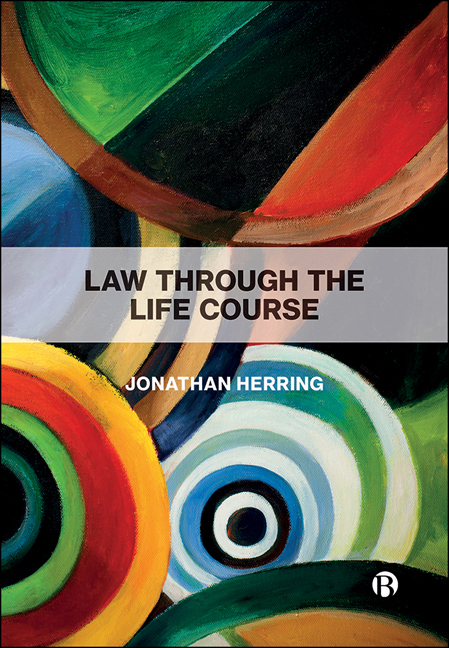8 - Family Law
Published online by Cambridge University Press: 05 January 2022
Summary
Introduction
At one level it might be thought that family law is the most natural area for a life course approach to be taken. Yet it is striking how the term ‘family law’ has become restricted to a very narrow understanding of families and a rather restrained set of issues. For example, older people rarely feature in textbooks on family law, although they play a key role in family life. Similarly, family law still centres on marriage, or marriagelike relationships, with friendships receiving little recognition, although they may be a key part of many people's lives. You would not need to be too cynical to suggest that you can expect a good friend to be with you for life, unlike a spouse. Nevertheless, it should be noted that, even with current divorce rates, most marriages do last forever.
This chapter will focus on three questions relevant for this book. The first is the definition of a family: what makes family life for the law and for people in their personal life. The second is the nature of parental status and parental rights. The third is whether the law ought to encourage or privilege certain forms of family.
Families and the life course
In one sense, families provide a stable factor during a person's life course. Whatever other changes there may be to an individual's personal circumstances and position in society, they will remain a member of their family throughout their life. Their position within a family structure may change over the years (from grandchild to grandparent, with many steps along the line), but family-formed identities will stay. So, you are born as the child of person X and will remain in that relationship for the whole of your life. Your understanding of that relationship and role within it may change, but the basic status (‘child of X’) will remain. You are also, at least in nearly all societies, born into a family: a group of people with primary responsibility to raise you. This is typically marked by having a surname, thereby linking you to a series of other people in kinship. To some people this can be a very strong identity. They may have family traditions (for example that ‘the Browning family’ always have a picnic on New Year's Day) or typical traits (‘the Browning family’ always leave everything to the last minute).
- Type
- Chapter
- Information
- Law through the Life Course , pp. 201 - 232Publisher: Bristol University PressPrint publication year: 2021



